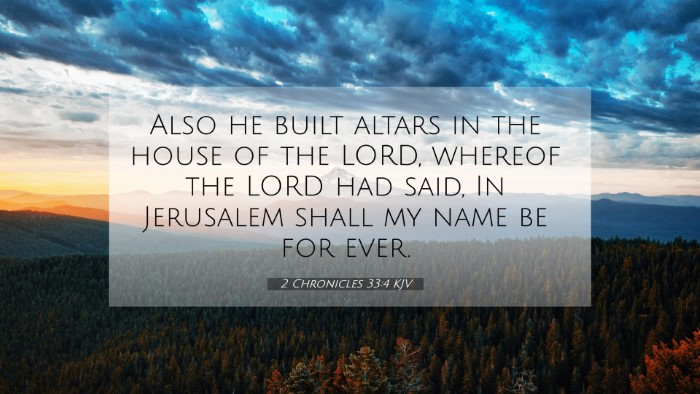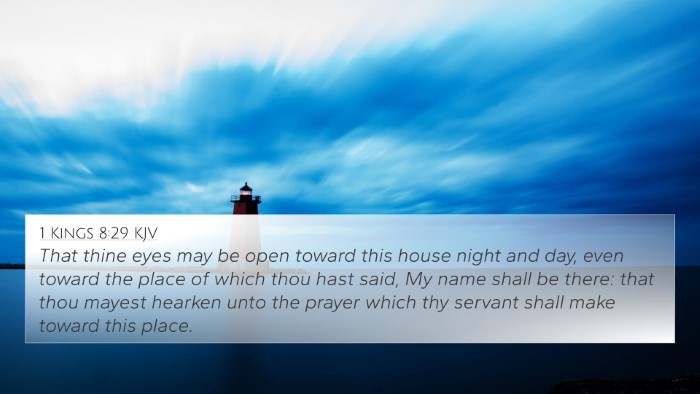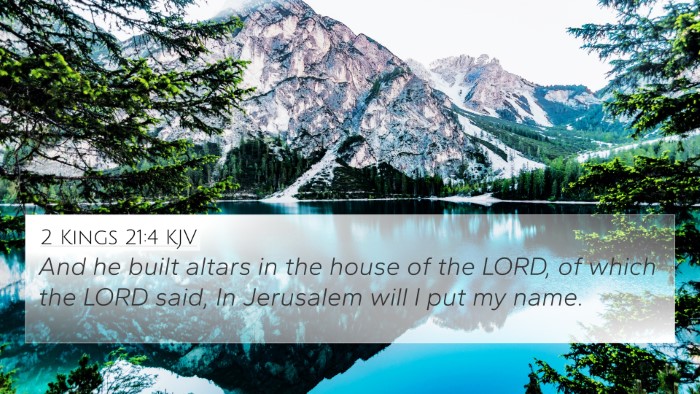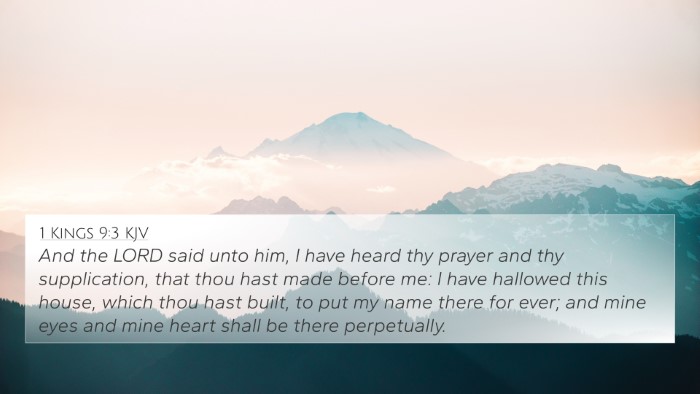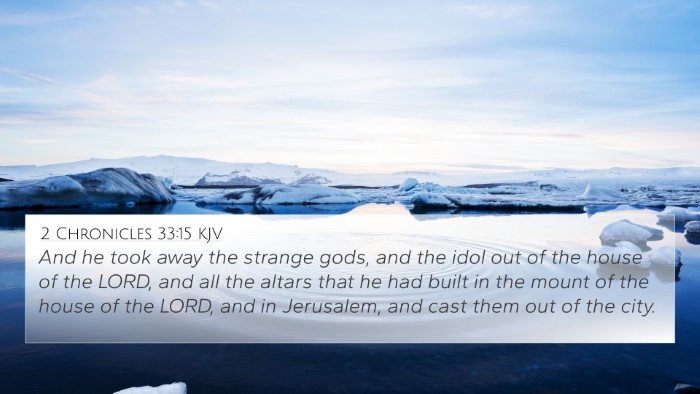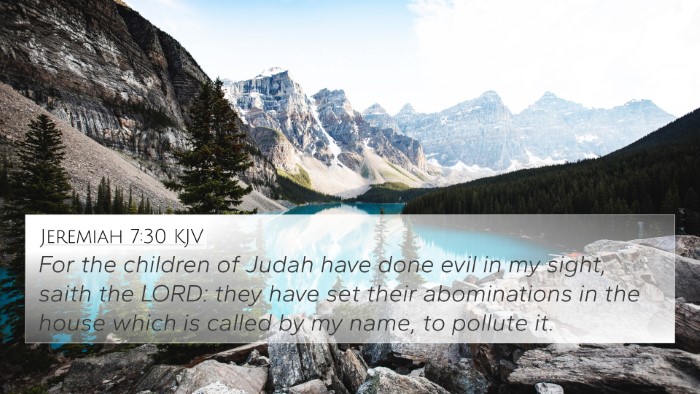Understanding 2 Chronicles 33:4
2 Chronicles 33:4 states: "Also he built altars in the house of the Lord, whereof the Lord had said, In Jerusalem shall my name be forever." This verse illuminates the intricate relationship between the worship practices instituted by King Manasseh and the divine mandate laid out for Jerusalem as a sacred space for worship.
Summary of the Verse
This verse demonstrates King Manasseh's significant alterations to the worship system in Jerusalem, reflecting a departure from the prescribed worship of Yahweh. By building altars, he not only sought to enhance the cult of local deities but also to establish a more personal connection to the divine, overshadowing God's exclusive claim to worship in Jerusalem.
Commentary Insights
-
Matthew Henry:
Henry highlights that despite warning signs and previous devotion to Yahweh, Manasseh's reign becomes a turning point for idolatry within the temple. This act not only defied God's commandments but also signifies a betrayal against the covenant agreement that Yahweh had with His people, indicating how far the king strayed from his duties.
-
Albert Barnes:
Barnes emphasizes the profound consequences of Manasseh's actions, detailing how the altars constructed within the temple grounds constituted a direct violation of the divine order, which restricted worship to Yahweh alone. The significance of being in Jerusalem underscores the anticipated seriousness of how sacred spaces ought to remain free from pagan influences.
-
Adam Clarke:
Clarke elaborates on the meaning behind these altars, noting that they symbolize a fusion of faith practices that neglect the singularity that God desired from His followers. He identifies the historical context of this scripture as crucial for understanding the broader narrative of disobedience within the Israelite's story, highlighting the consequences of turning away from God.
Thematic Connections in the Scriptures
2 Chronicles 33:4 serves as a pivotal moment in the scriptural narrative, emphasizing themes of idolatry, disobedience, and the sanctity of divine worship. By connecting this verse to other relevant scripture, we uncover a broader Biblical dialogue on the nature of worship:
- Exodus 20:4-5: Prohibitions against idolatry directly mirror Manasseh's actions.
- Deuteronomy 12:5-14: Establishes God's requirement to worship only in designated locations, warning Israel against corrupt practices.
- 2 Kings 21:4: A parallel narrative that recounts similar actions taken by Manasseh in building altars.
- Isaiah 1:11-15: Highlights God's disdain for ritualistic worship detached from true devotion.
- Jeremiah 7:30-31: Further commentary on the abominations done in the house that is called by His name.
- Ezekiel 8:5-16: Depicts further abominations and the divine judgment that follows such worship practices.
- Matthew 15:8-9: Jesus' condemnation of vain worship aligns with the warnings found in Old Testament scriptures against such practices.
Cross-Referencing Biblical Texts
This verse not only serves as a point of reflection on historical actions but also provides a template for understanding God’s ongoing call for exclusive worship. The act of constructing altars within His house breaches the sacred covenant and serves as a foundation for critical theological discourse surrounding fidelity to God’s commands. To enrich personal study or sermon preparation, exploring the interwoven themes through these diverse references informs the reader’s understanding:
-
Connections with Genesis 12:7 highlights God's promise over the land, reflecting His intent for Jerusalem as a holy space.
-
Psalm 78:58 draws parallels with the context of anger provoked through idolatrous practices.
-
Acts 7:48 connects with the New Testament's teaching about the temple as not tied solely to physical buildings, yet underlines the sacredness of the worship there.
-
Revelation 3:20 speaks to God's invitation for genuine fellowship, contrasting with the empty rituals established by Manasseh.
Conclusion
In studying 2 Chronicles 33:4, we observe the vital interplay between the divine directives given to Israel and their earthly leaders' actions. Manasseh’s deviation highlights the dangers of spiritual compromise and underscores the need for not only adherence to scriptural commands but also commitment to true worship.
For those seeking deeper insights into the connections between Bible verses, this analysis not only serves as a reminder of the importance of context but also provides tools for comprehensive Bible cross-reference studies. Engaging with the mentioned thematic cross-references allows a fuller understanding of scriptural integrity and the God who seeks a genuine connection with His people.


